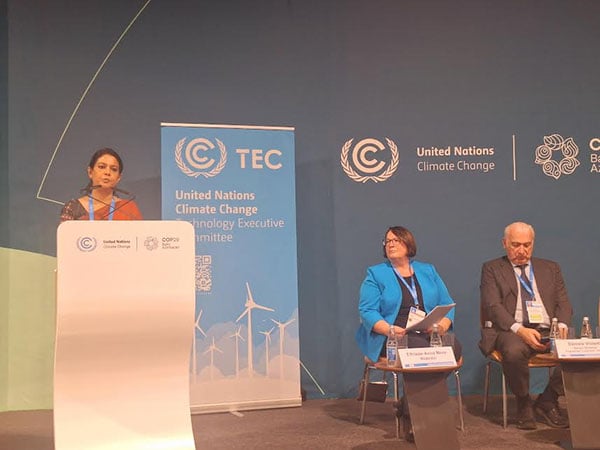
DHAKA, Nov 18, 2024 (BSS)- Adviser to the interim government on environment, forests and climate change Syeda Rizwana Hasan has said timely and fair financial and technological support is need for Bangladesh's transition to renewable energy.
“Despite hurdles, Bangladesh remains committed to achieve its target of generating 40 percent energy from renewable sources by 2041,” she said adding in view of this the interim government is actively revisiting the present energy policies to ensure sustainability and sovereignty.”
Rezwana was addressing a sideline event title- “Road to Net Zero: Navigating the Energy Transition in South Asia” at the World Bank-IMF Pavilion during the World Climate Conference (COP-29) in Baku, Azerbaijan, according to a message received here.
The adviser said to reduce dependence on imported solar panels, China has been requested to relocate some of its solar manufacturing plants to Bangladesh.
Noting that policies on solar energy, including high taxes, are also under review, she said potentials of rooftop solar on high-rise buildings and unused government or tea estate lands are being explored as part of its solution.
Speaking in an another event organised by UNFCCC, Rizwana noted that implementing Bangladesh’s updated Nationally Determined Contributions (NDC) requires US$ 176 billion by 2030 and US $32 billion is needed for unconditional actions.
“The remaining amount relies on international support, particularly through mechanisms like Article 6 of the Paris Agreement that provides a framework for countries to cooperate towards the implementation of their NDC through carbon markets. Bangladesh is preparing to submit its NDC 3.0 next year,” she noted.
The environment adviser stressed the need for partnerships with Germany and other global leaders in de-carbonizing key industries like steel and cement.
In this regard she highlighting Bangladesh’s vision of “three zeros”- zero carbon emission, zero poverty and zero unemployment, inspired by Nobel Laureate Professor Muhammad Yunus.
Rezwana put emphasis on integrated natural resource management alongside carbon reduction, requesting Germany for its assistance in cleaning rivers in Bangladesh.
Rizwana invited global stakeholders to an international climate finance conference in Bangladesh in March 2025 and urged for support for capacity building of the young climate activists.
Later, she attended a session organised by the Ministry of Environment of Japan on ‘Article 6 Implementation Partnership’ at Japan Pavilion to delve into market-based approaches for reducing emissions.
Rizwana sought Japan’s support for capacity building, technology transfer and investments.